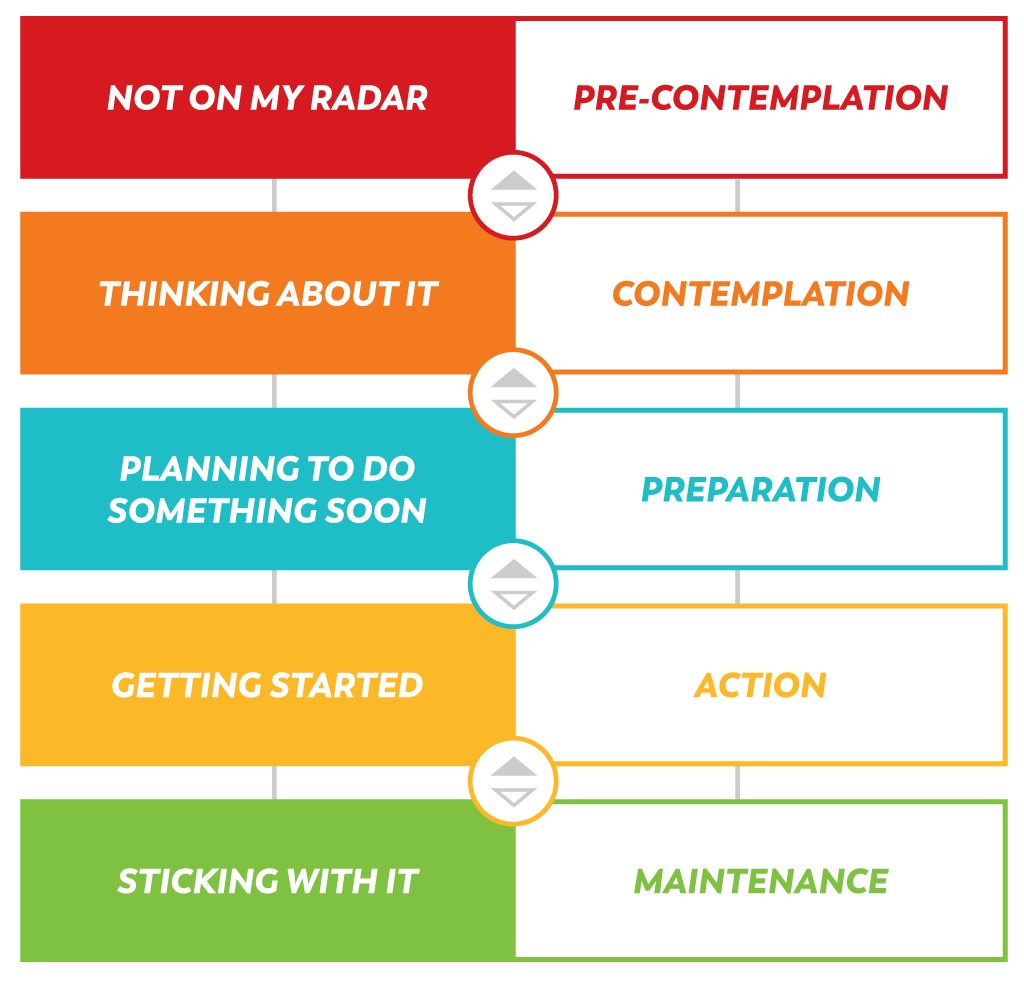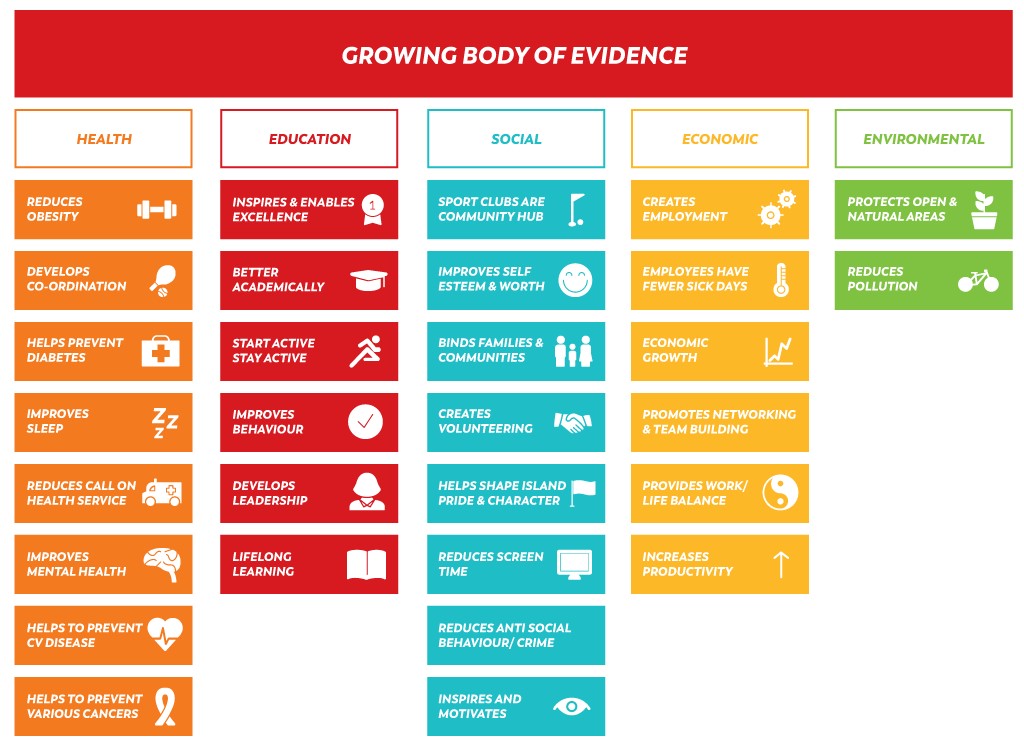The Benefits
The benefits of sport and physical activity are widely known by politicians, officers and islanders. It is however clear that knowing the benefits to your health and wellbeing is not enough in itself to support behaviour change.
The behavioural change model below helps us understand the thought process and stages of journey islanders may be on with regards to their own attitude towards physical activity. This process will help shape our efforts, along with the interventions implemented and support available for islanders to be more active. People regularly move back and forth between the stages.

(Prochaska and DiClemente Transtheorectical Approach in Handbook of Psychotherapy Integration John C Norcross, Marvin R Goldfried (eds), OUP, 2005.)
“Regular physical activity is proven to help prevent and treat noncommunicable diseases such as heart disease, stroke, diabetes and breast and colon cancer. It also helps to prevent hypertension, overweight and obesity and can improve mental health, quality of life and well-being.
In addition to the multiple health benefits of physical activity, societies that are more active can generate additional returns on investment including a reduced use of fossil fuels, cleaner air and less congested, safer roads.” (WHO Global Actions Plan for Physical Activity)
The benefits from physical activity are plentiful at both the societal and individual level and having an active population needs to be a priority that runs through the fabric of Jersey and be seen as a priority enabler to the delivery of the Government of Jersey Common Strategic Policy and Future Jersey Framework detailed below.
The illustration below highlights the many benefits that sport and active living can deliver.

